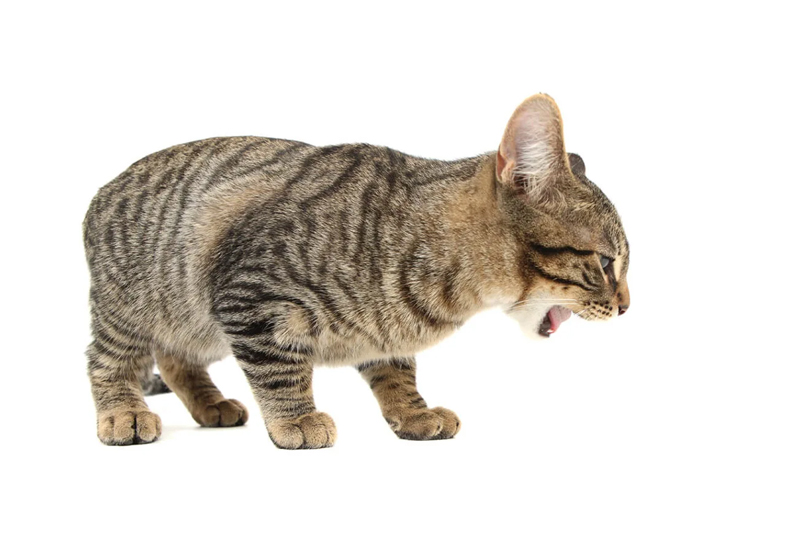When our beloved cats start vomiting, it can be both worrying and confusing. This blog aims to shed light on why your cat may be experiencing vomiting and what you can do about it. If you’re concerned about your cat’s health, Palos Animal Hospital in Palos Heights, IL, is here to help. You can reach out to us at (708) 448-6600 for guidance or to schedule an appointment. Our goal is to provide you with information to better understand your cat’s condition and to stress the importance of professional veterinary care in these situations.
Common Causes of Cat Vomiting
Vomiting in cats can be caused by a variety of factors ranging from simple to complex. Understanding these causes is the first step towards helping your pet.
Eating Too Fast or Dietary Changes
Some cats may vomit after eating too fast, or because of sudden changes in their diet. Their sensitive stomachs may not agree with a new food, or they may ingest too much air while gulping down their meal.
Hairballs
Hairballs are a common issue, especially in long-haired breeds. Regular grooming can help reduce hairballs, but sometimes they can lead to vomiting if your cat struggles to pass them.
Ingesting Toxic Substances
Cats are curious creatures and sometimes eat things they shouldn’t. Household plants, human medications, or toxic foods can cause severe reactions, including vomiting.
Health Conditions
Various health issues such as infections, kidney disease, diabetes, or thyroid problems could also lead to vomiting. It’s essential to consult a veterinarian if vomiting persists to rule out these conditions.
When to Seek Veterinary Help
It’s crucial to know when vomiting is a sign that your cat needs to see a vet.
Persistent Vomiting
If your cat vomits more than once or the vomiting continues over a day, it’s time to call Palos Animal Hospital. Persistent vomiting can lead to dehydration and other serious health issues.
Vomiting with Other Symptoms
Be alert to other signs of illness such as lethargy, diarrhea, or loss of appetite. These symptoms, combined with vomiting, warrant a visit to the vet.
Blood in Vomit
Blood in your cat’s vomit is a serious concern and requires immediate veterinary attention. It could indicate a severe health issue that needs to be addressed promptly.
Preventing Cat Vomiting
While not all causes of vomiting can be prevented, there are steps you can take to reduce the risk.
Monitor Eating Habits
Ensure your cat is eating slowly and not overeating. There are special bowls designed to slow down their eating pace.
Gradual Diet Changes
When changing your cat’s diet, do it gradually over a few days to allow their stomach to adjust.
Regular Grooming
Regularly grooming your cat can help prevent hairballs. Brushing long-haired breeds more frequently can significantly reduce the risk of hairball-induced vomiting.
Keep Harmful Substances Out of Reach
Ensure that all toxic substances, including certain plants and human foods, are kept well out of your cat’s reach.
Let Palos Animal Hospital Help with Any of Your Cat’s Health Concerns
Vomiting in cats can be caused by many different things, from simple dietary indiscretions to serious health conditions. While occasional vomiting may not be a cause for alarm, it’s important to monitor your cat and seek veterinary care if vomiting persists or is accompanied by other symptoms. At Palos Animal Hospital, we’re here to assist you and your cat through any health concerns. For advice or to schedule an appointment, please call us at (708) 448-6600. Together, we can ensure your cat leads a healthy and happy life.



